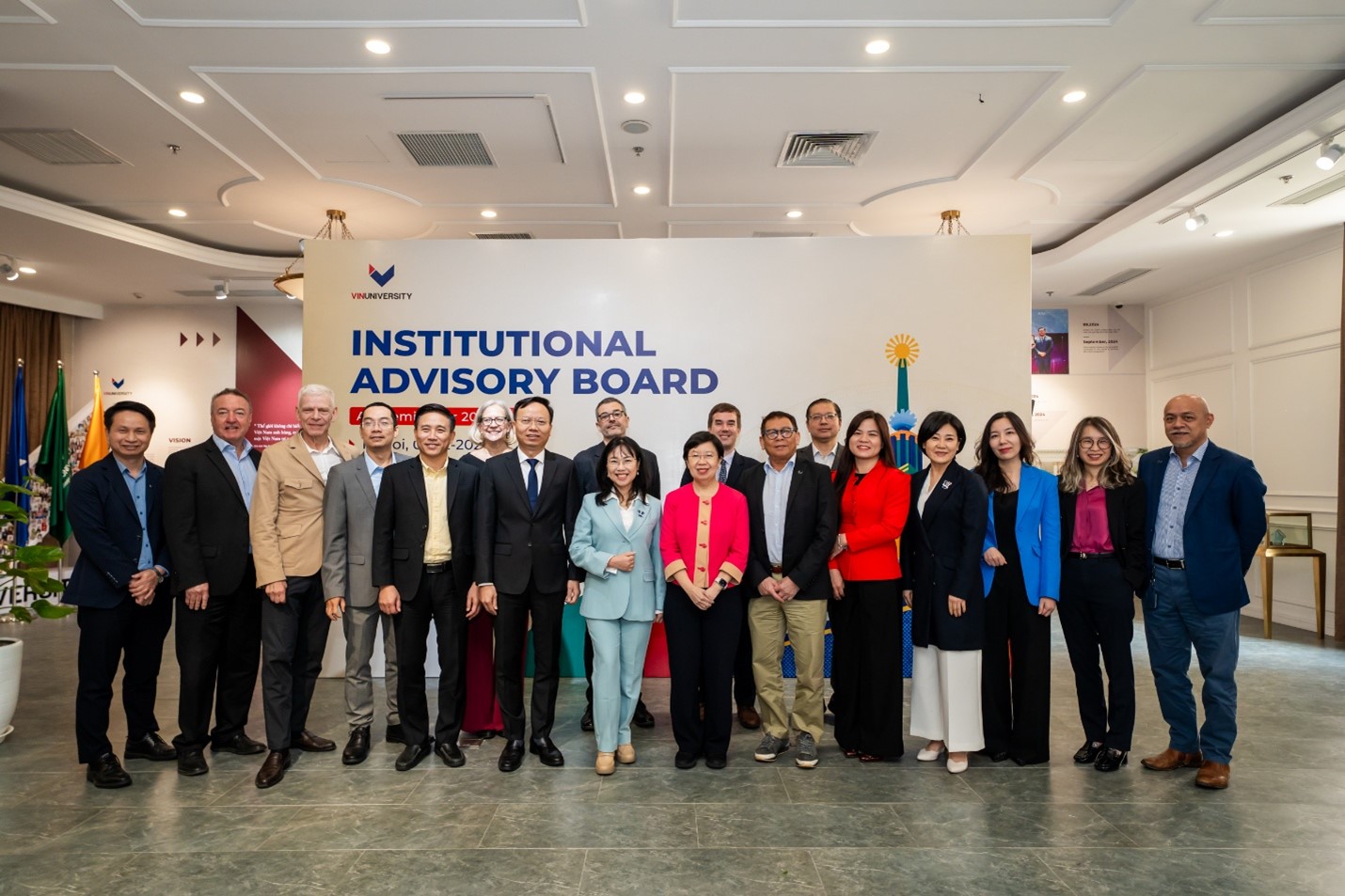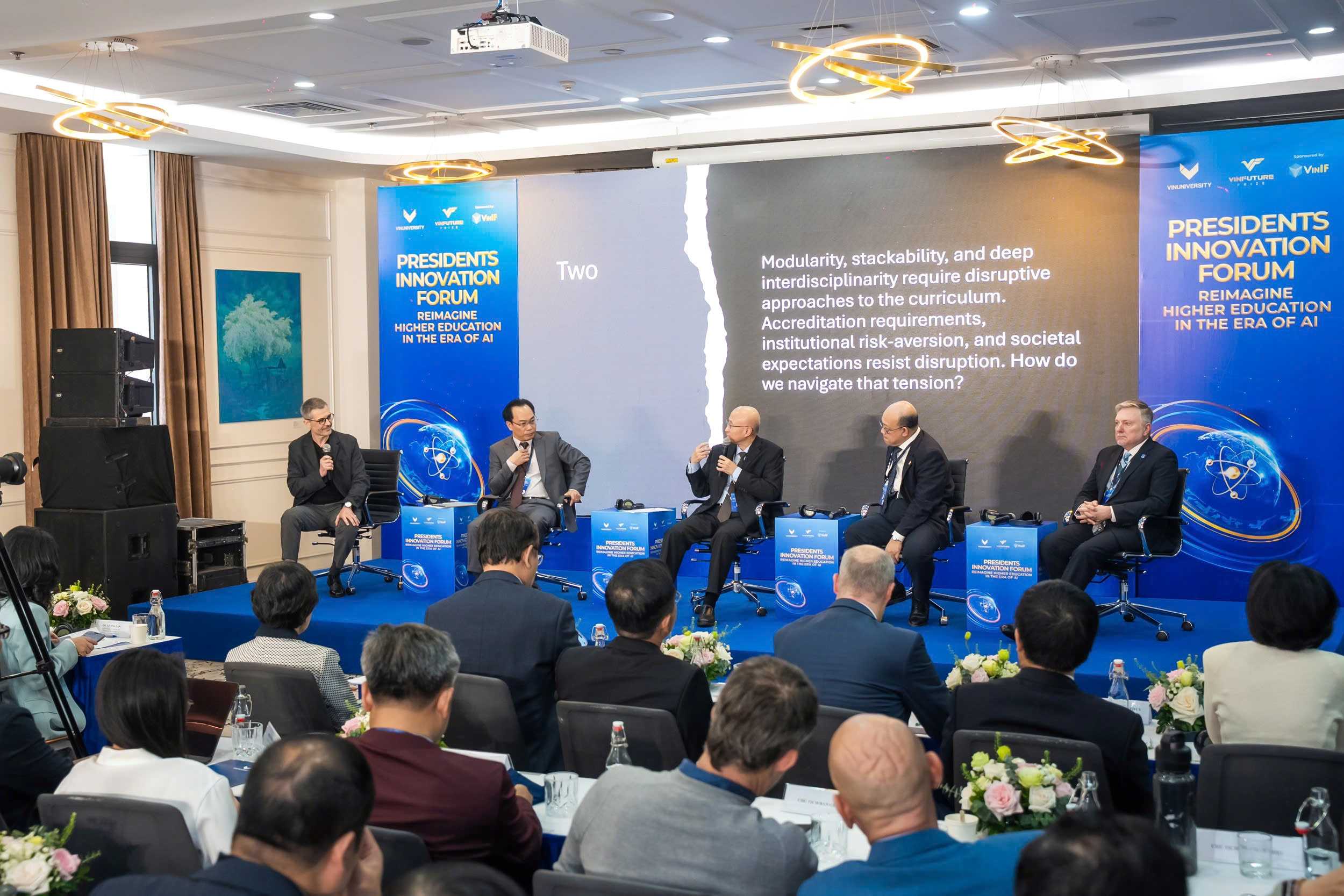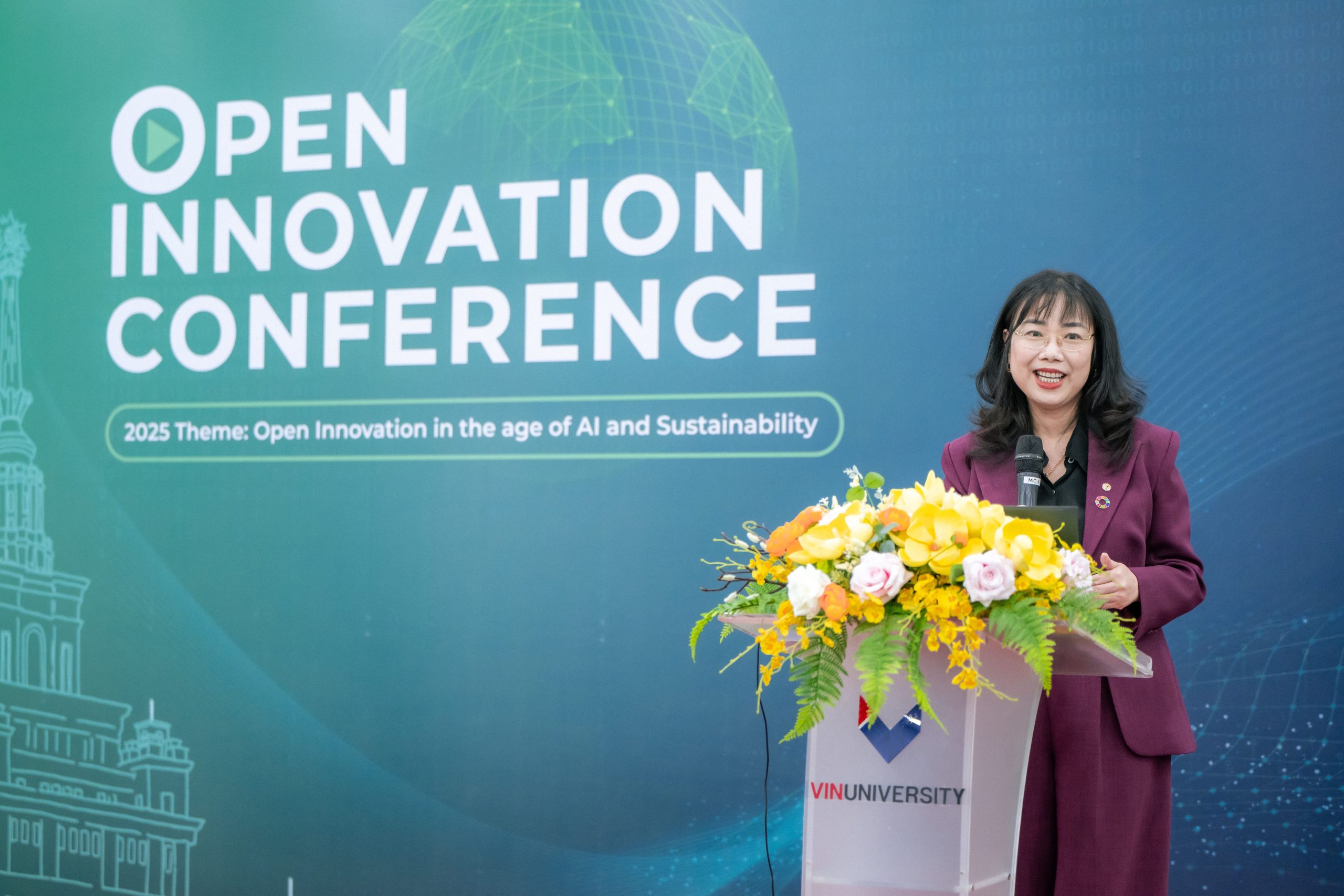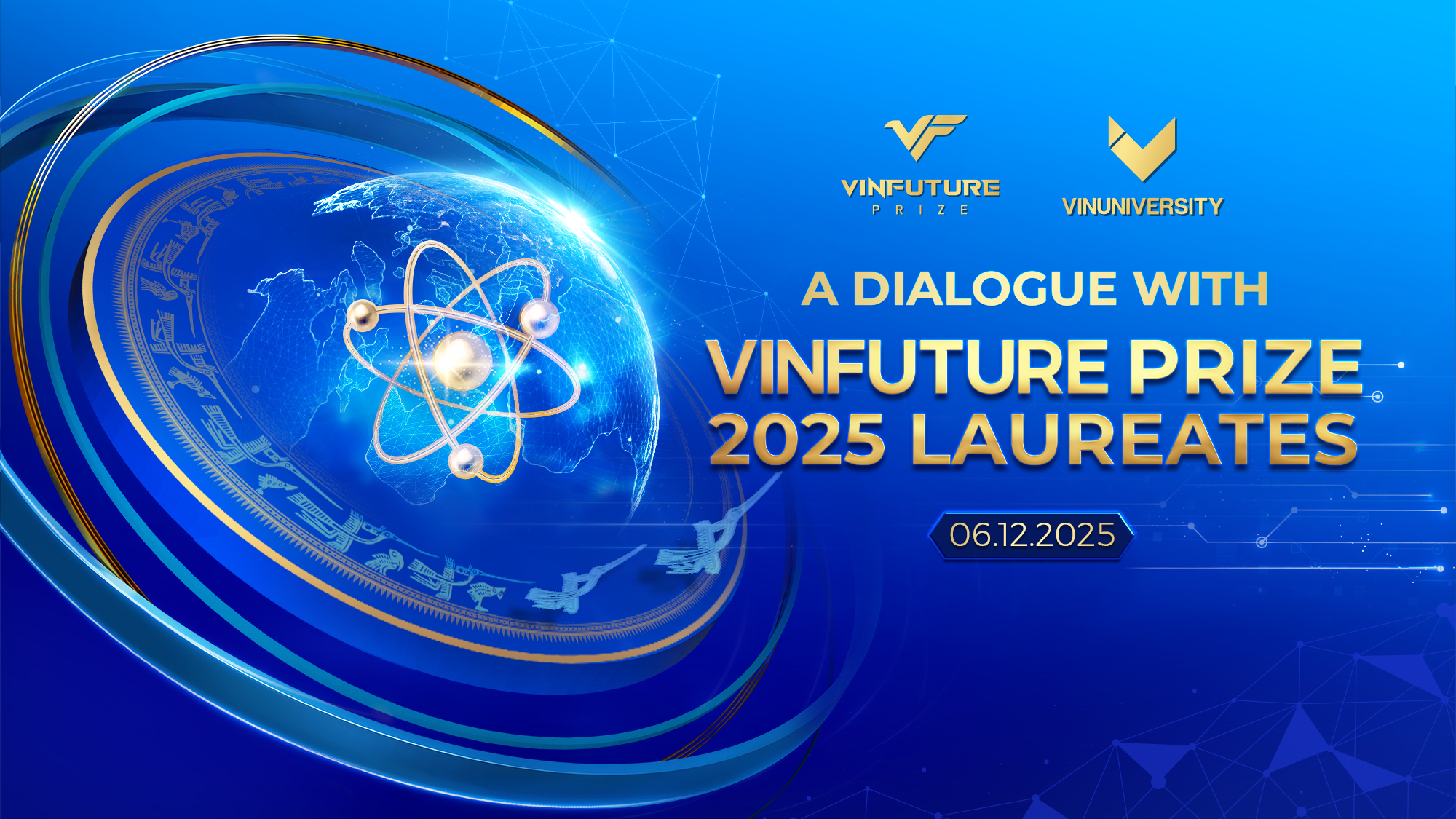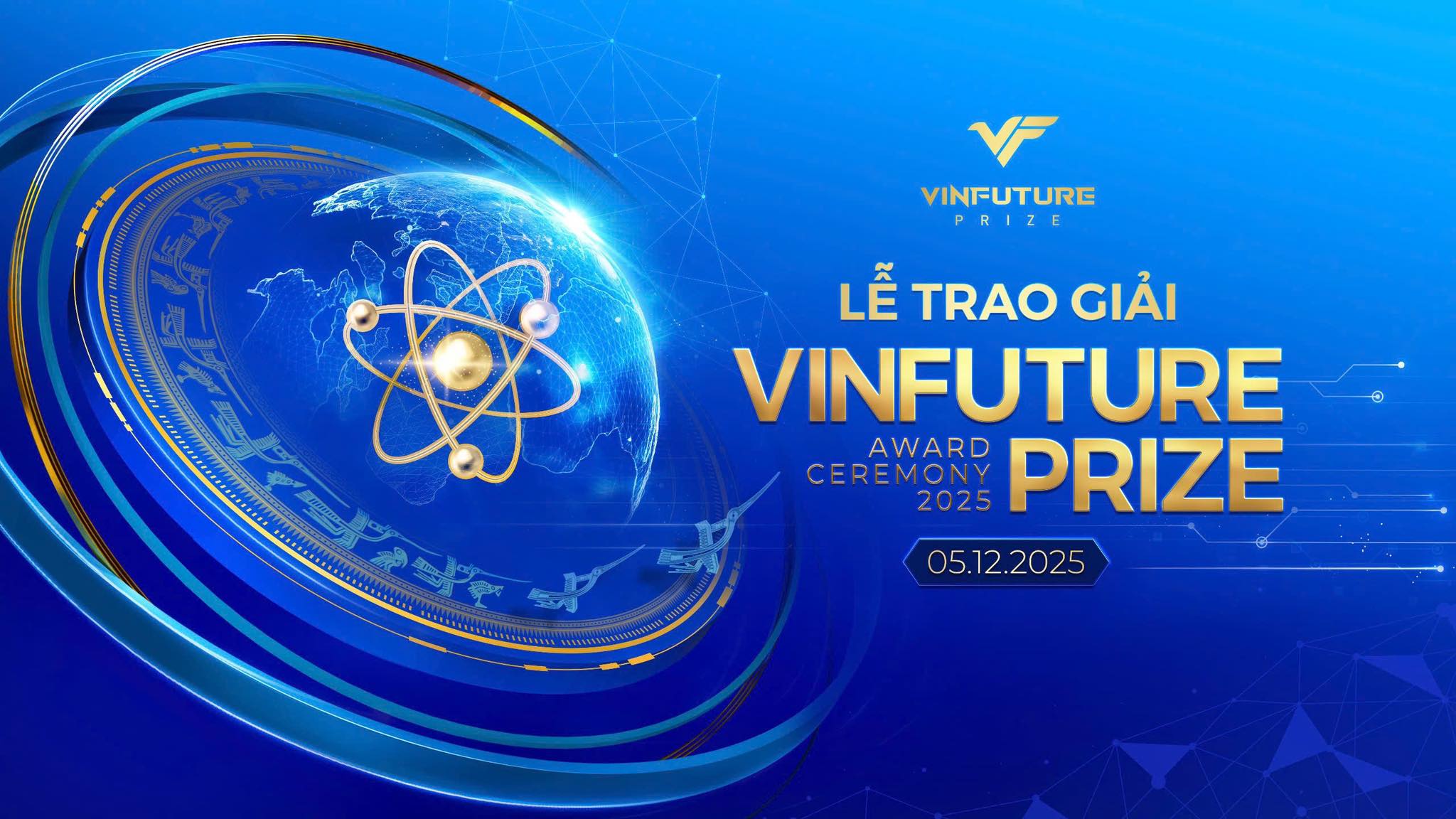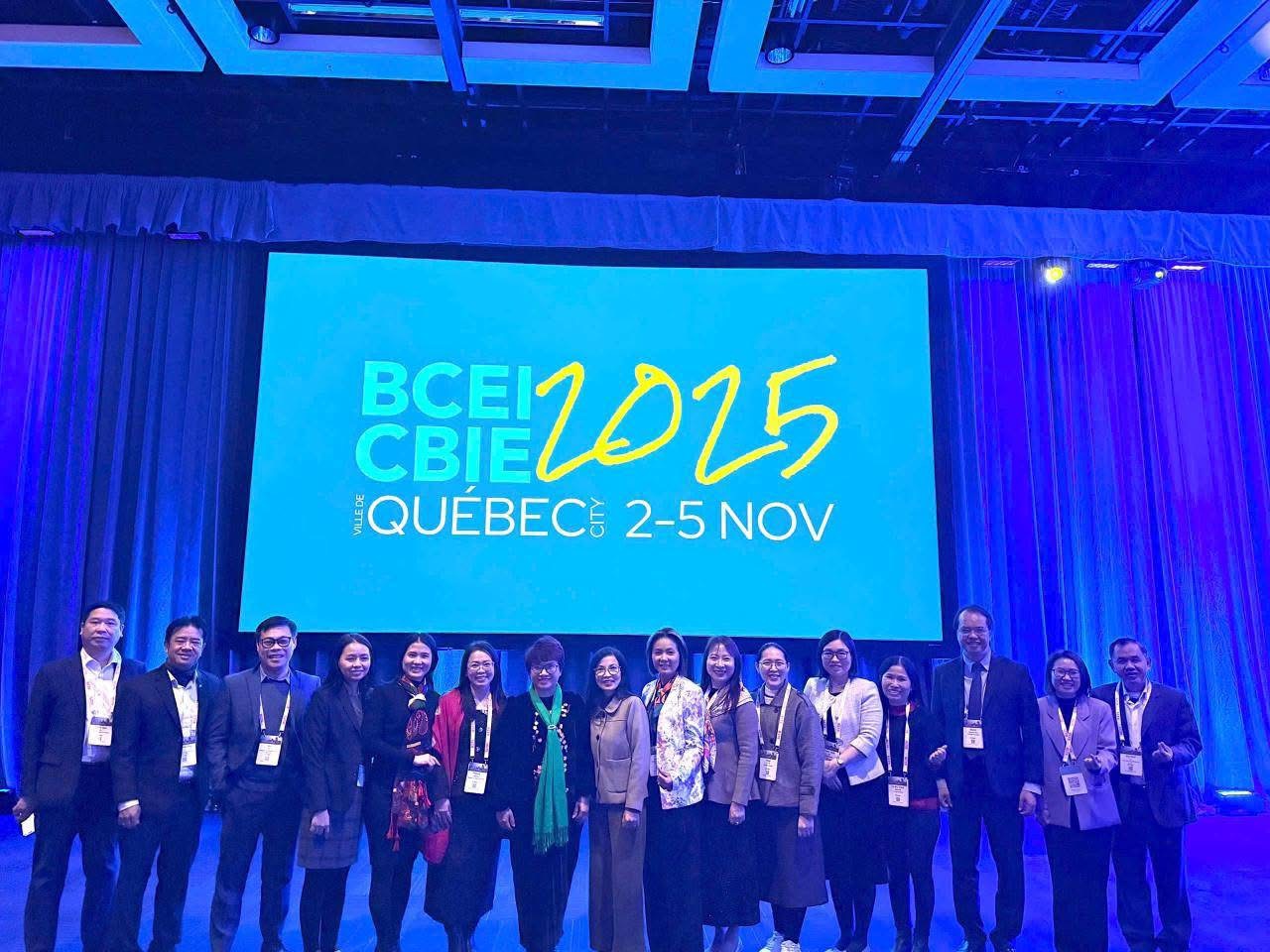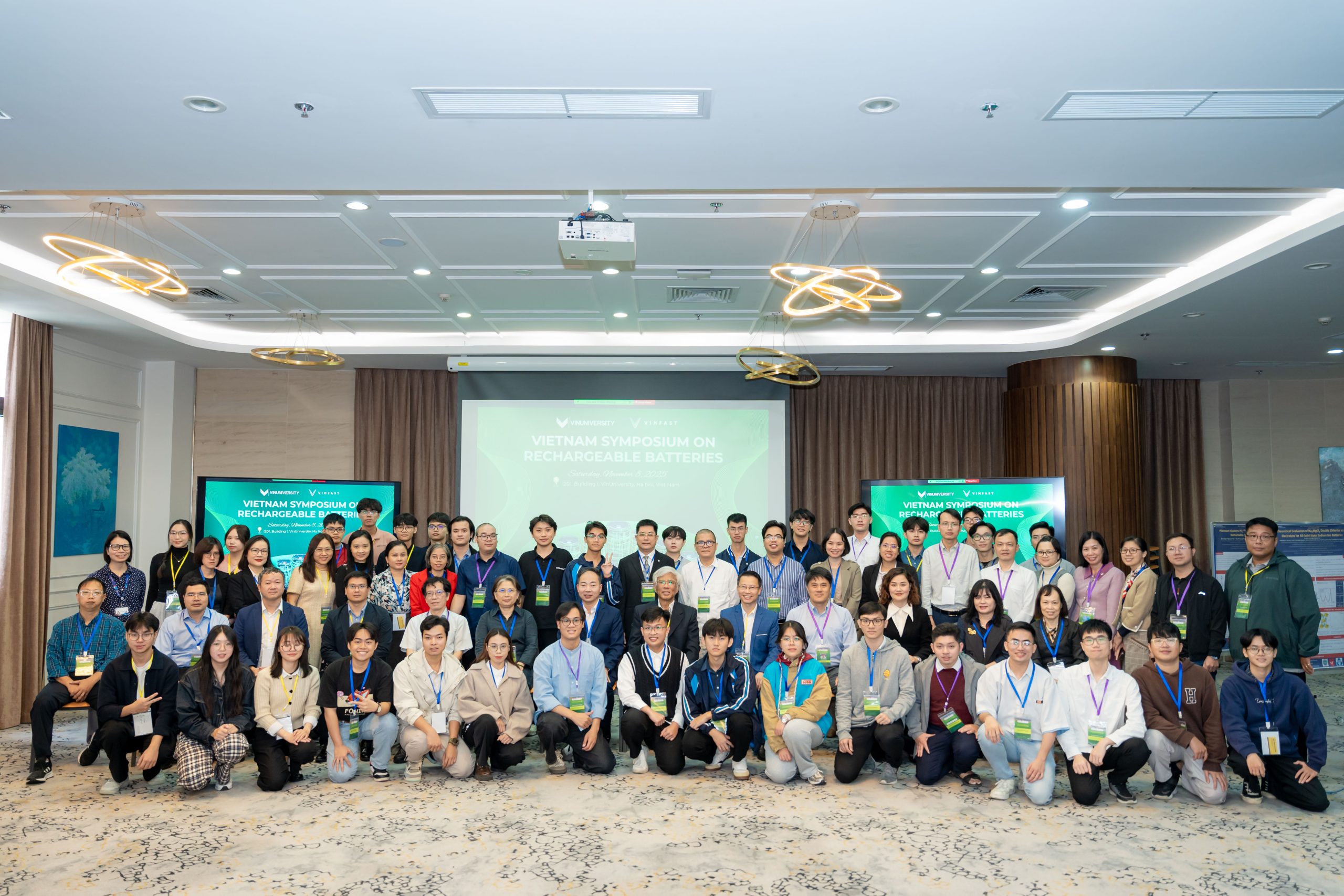The 16th Asian Conference on Machine Learning (ACML 2024), hosted at VinUniversity from December 5-8, concluded with resounding success, leaving participants inspired and motivated to push the boundaries of machine learning research and application. Over four exciting days, the conference brought together academics, industry leaders, and enthusiasts to explore cutting-edge advancements, foster meaningful collaborations, and celebrate achievements in the field.
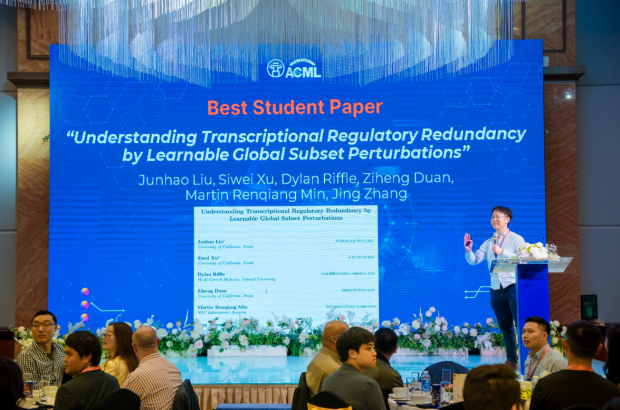
DAY 1: A PROMISING START
The opening day set an inspiring tone, welcoming over 160 attendees and featuring two plenary sessions, six oral presentation sessions that encouraged insightful discussions and interdisciplinary collaboration. Key highlights included:
Plenary Session #1: “AI Superhuman Reasoning for Math and Beyond” by Dr. Thang Luong (Google DeepMind)
He began working in Neural Machine Translation 2014, leveraging pattern recognition based on deep neural networks. Over time, he transitioned to developing more complex systems involving various forms of reasoning, starting with chat systems in 2018, large language models like ChatGPT in 2022, and now mathematical problem-solving systems. Their latest mathematical system approaches gold medal-level performance at the International Mathematics Olympiad, designed for high school students. This is achieved by combining what psychologists refer to as System 1 reasoning—pattern-based reasoning used in chat systems—with System 2 reasoning, which involves structured logical reasoning tailored for solving mathematical problems. The System 2 component generates verifiable proofs, while the System 1 component guides the process. He also shared that his ultimate goal is to create AI systems that surpass human capabilities. Dr. Thang concluded his talk with a prediction: by 2030, AI will achieve such advancements that it will be awarded a Fields Medal, often regarded as the “Nobel Prize of Mathematics.”
Plenary Session #2: “Learning as Distribution Matching: A Perspective through Optimal Transport” by Prof. Dinh Phung (Monash University)
Prof. Dinh showcased a series of groundbreaking theoretical advancements his team has achieved in Machine Learning. To set the stage, he delved into the history of Optimal Transport Theory, tracing its origins back to Napoleonic-era France. This theory addresses problems like efficiently distributing bread from various bakeries across a city to shops in a way that meets demand, respects production limits, and minimizes transportation costs. Remarkably, this logistical challenge forms the foundation of a significant class of problems in machine learning: mapping between probability distributions. His talk explored themes such as robustness, hierarchical understanding, transferring learning across domains, and learning entirely new concepts.
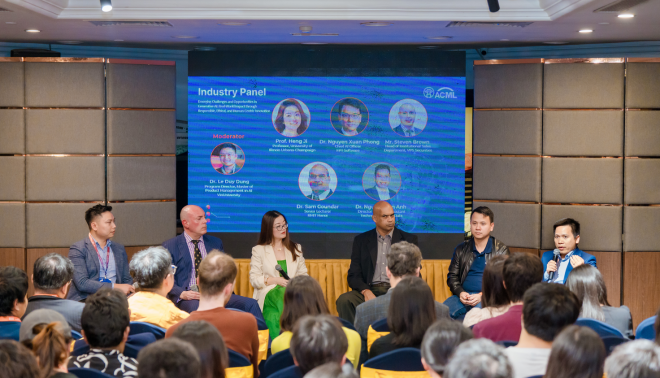
DAY 2: BRIDGING ACADEMIA AND INDUSTRY
The second day delivered a blend of technical depth and industry relevance:
Plenary Session #3: “Making Large Language Model’s Knowledge More Accurate, Organized, Up-to-date and Fair” by Prof. Heng Ji (UIUC).
Prof. Heng Ji captivated the large audience by presenting a comprehensive overview of her recent work. Once an expert in Information Retrieval, she found herself facing a shift in her field with the advent of generative AI models like ChatGPT, which have become dominant in the tech landscape. Rather than being sidelined, Prof. Heng Ji reinvented her career by venturing into new areas, such as drug and materials discovery, leveraging the underlying technology of ChatGPT. She also integrated Generative AI models into her processes, using them to tackle more complex and critical challenges than ever before.
Industry Panel: “Emerging Challenges and Opportunities in Generative AI: Real-World Impact through Responsible, Ethical, and Human-Centered Innovation”, featured by Dr. Le Duy Dung as the Moderator and five guest speakers, including:
- Prof. Heng Ji – Professor, University of Illinois Urbana-Champaign
- Dr. Nguyen Xuan Phong – Chief AI Officer, FPT Software
- Mr. Steven Brown, Head of Institutional Sales Department, VPS Securities
- Dr. Nguyen Kim Anh, Director of Virtual Assistant Technology, VinBigData
- Dr. Sam Goundar, Senior Lecturer, RMIT Hanoi
Key Highlights from the panel:
- The Expanding Horizons of GenAI: The panel highlighted GenAI’s impressive progress in fields like finance, investment, science, and software, while urging people to explore its untapped potential.
- Beyond Technology: The Human-Centric Approach: The discussion emphasized complementing technological progress with education, ethical policies, and a human-centric approach to ensure GenAI is used responsibly and aligns with values of fairness, transparency, and inclusivity.
- Collaboration for a Better Future: The panel called for academia, industry, and government collaboration to establish a shared AI framework that fosters innovation while upholding ethical principles for lasting societal benefits.
The Industry Panel provided a compelling vision for the future of GenAI, inspiring attendees of ACML 2024 to think critically about their role in shaping its development.
The conference banquet on the evening of Day 2 was also a highlight of ACML 2024, bringing together attendees to celebrate the achievements of the conference. The event included the highly anticipated Best Paper Awards, where outstanding research papers were recognized.
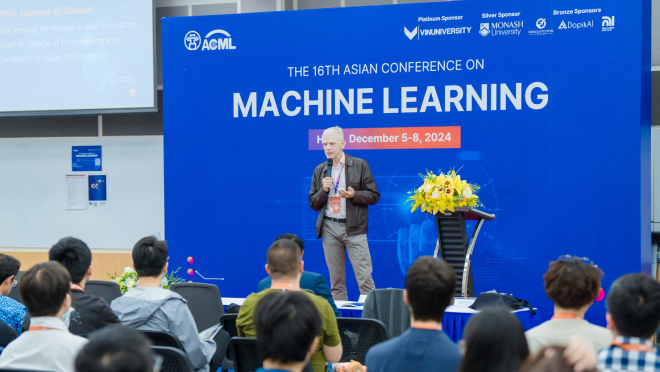
DAY 3: PIONEERING RESEARCH
Participants immersed themselves in groundbreaking research and methodologies, with standout moments including:
Plenary Session #4: “Neurosymbolic AI for Safety-Critical Agile Control” by Prof. Yisong Yue (Caltech).
Prof. Yisong Yue’s talk centered on autonomous control, beginning with a compelling comparison to modern aircraft, which rely on mathematically developed controllers with precise safety guarantees. He highlighted the staggering $180 billion invested in autonomous driving research by 2022 and shared insights from his years in the industry before transitioning back to academia. Prof. Yue addressed control challenges in deep learning, presenting examples such as two-legged walking robots, one-legged hoppers, drone swarms – situations where traditional control struggles with complex or dynamic physics. He emphasized the importance of adapting neural networks within controllers to enhance stability and prevent instability.
DAY 4: A GRAND FINALE OF EXPLORATION AND COLLABORATION
On the final day of the conference, participants had the opportunity to engage in discussions and exchanges during four in-depth workshops and tutorials, guided by distinguished and experienced guest speakers. Participants took time to reflect on the wealth of knowledge shared throughout the event, recognizing the insights gained as a foundation for future collaborations and innovations in the field.
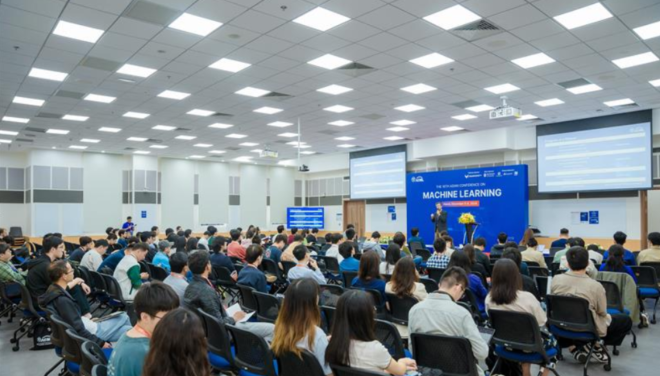
The conclusion of ACML 2024 marked a celebration of collective achievements and the limitless potential of Machine Learning. As a host and platinum sponsor, VinUniversity is proud to have facilitated this premier event, reinforcing its commitment to advancing education, research, and innovation.
The ACML journey continues, promising groundbreaking advancements and meaningful connections. See you next year at ACML 2025 in Taiwan!


